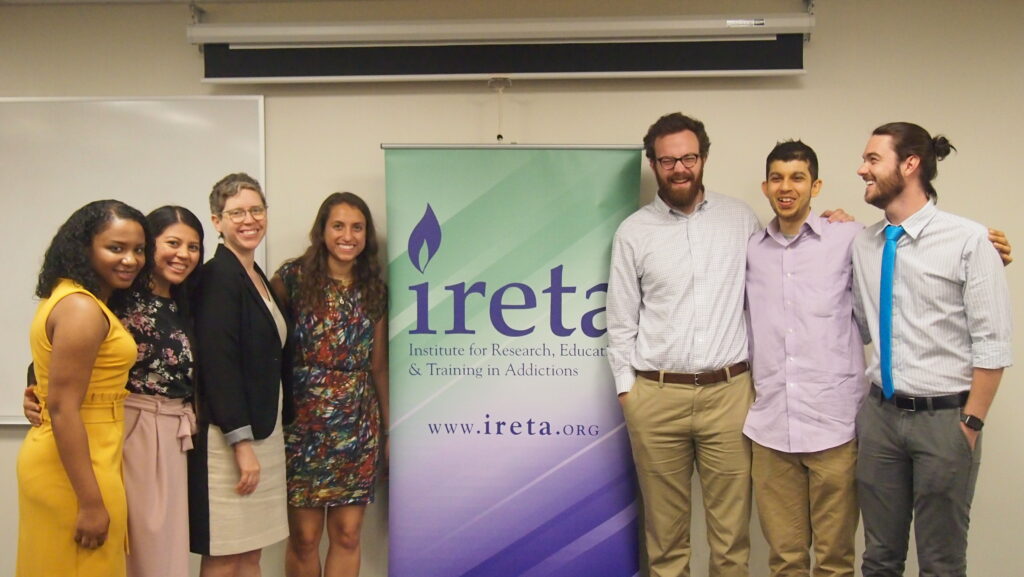
This year, as we have for the last 20 years, IRETA is hosting two groups of medical students who want to learn more about substance use, addiction, and addiction treatment.
Our June cohort graduated on June 21. They came from all over the country to spend three weeks in Pittsburgh, where their days were packed with lectures, physician shadowing, site visits, and more.
What would a typical day look like for our medical students? The group might hear a lecture on Motivational Interviewing by a MINT-certified trainer, followed by an opportunity to practice using standardized patients. They might visit a treatment center for men experiencing homelessness (or women, or adolescents, or patients receiving methadone) and speak with staff and clients about their experiences. They might shadow street medicine workers through Operation Safety Net, learn about the neurobiology of addiction from expert psychiatrists, or spend the day at the Allegheny County Jail.
At the end of the experience, each student completed a paper and presentation on a topic of personal interest to them. The June group chose the following topics:
– Low-Dose Naltrexone Use for Fibromyalgia
– Morphine v. Clonidine Neonatal Abstinence Syndrome Treatment
– Cannabis Use Disorder
– Epigenetics and Addiction
– Exploring Mindfulness and Meditation as a Treatment Modality for Addiction
– Addressing Substance Use Disorders in the Emergency Department
– Overview of Overdoses and Health Disparities in Appalachia
One of the most rewarding aspects of this program is the strong evidence that it works–it has a lasting impact on participants’ attitudes toward patients with substance use disorders. A longitudinal analysis of the program was published in 2017, showing that even after five or six years, the effects of the program remain. At a time when physicians’ interest in addiction is still fledgling (but growing) and nearly half of Americans have a family member or close friend who has struggled with addiction, the importance of this program keeps hitting home.
Our medical student fellowship is made possible by the vision and financial support of the Scaife Family Foundation. It also relies heavily on dozens of partners here in Pittsburgh, without whom we could not provide such a high-quality experience to the students. We have such a deep community of expert researchers and practitioners in our city and we are honored that they offer their time to help future physicians learn about substance use disorders.
Thanks to all who made the June session a success and we’re looking forward to another session in July!





